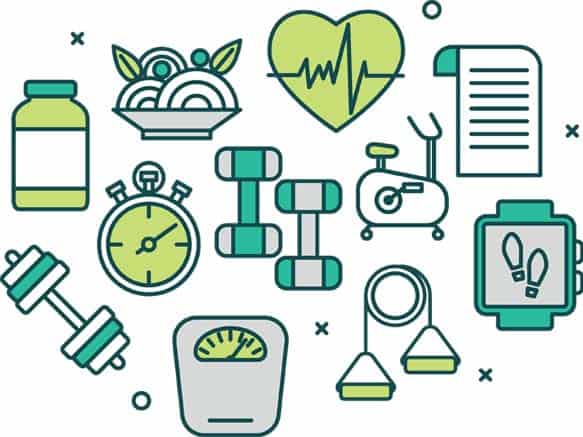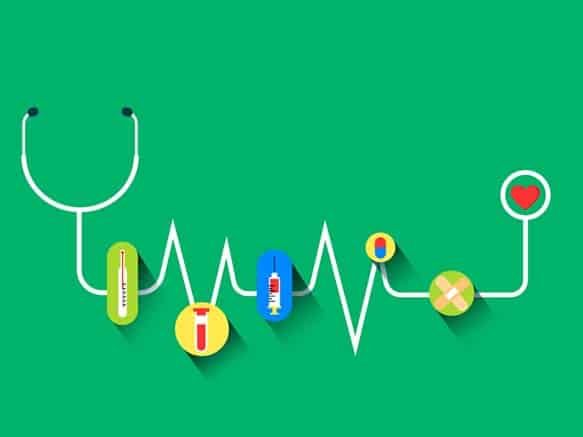If you have diabetes, exercise is an incredible way for you to help manage your disease.
Short term benefits are that it immediately burns off excess glucose that you have in your blood.
Long term, you can lose weight, increase the health of your heart and other organs, and actually change the way your muscles respond to insulin for hours after you exercise.
Along with benefits, there are also risks to exercising with diabetes. Many people experience hypoglycemia after they exercise, which is a drop in your blood sugar that can be very dangerous.
Another risk is injury, which can happen to anyone, not just to someone with diabetes.
So how can you start exercising safely so that you can experience the benefits?
Where should you even start?
My advice is to find an exercise physiologist. They can be an incredibly useful resource when it comes to exercise and your personal health.
Contents
What is an exercise physiologist exactly?
An exercise physiologist works with high risk individuals and focuses on how the human body responds to exercise. They are specially trained individuals that have studied safe conditioning techniques and the science of exercise. They have also studied chronic illnesses, such as diabetes, and understand how exercise can help or harm the person.
Not only do they help design an exercise plan that is customized for you based on your medical history, but they also perform fitness and stress tests that measure important factors such as your blood pressure and heart rate, and analyze the data to see what exercises you would benefit the most from. Their goal is to improve your overall health, not just make you look better on the outside.
What is their role in your diabetes care?
Your exercise physiologist should be working with your healthcare team, which includes your doctor, as well as anyone else that is involved in your care, such as a case manager or a dietician. Your exercise physiologist’s job is to help you reach your personal goal.
Some common goals that people strive for are:
- Lowering blood sugar or A1C
- Losing a certain amount of weight
- Decreasing blood pressure
- Lowering cholesterol
- Increasing amount of muscle mass
- Setting a goal such as a 5K run in your area
The great thing about working with an exercise physiologist, is that they look at your entire medical history and find a plan that works for you. They take into account any other problems that you have such as arthritis, congestive heart failure, or neuropathy, and change the plan according to any limitations or risks that they bring to your life.
Since they have training with chronic illnesses, they can help determine what type of exercises are safest for you and your diabetes.
Things they think about are:
- When is the best time of day for you to exercise based on your blood sugars and medications?
- How can you prevent hypoglycemia when exercising and afterwards?
- How can injuries be prevented?
Exercise physiologists are also able to change your exercise regimen when you need to increase your stamina and strength. They can see the progress that you have made and determine what the next steps should be to help you get to your goal. They can also help with regular blood glucose monitoring and teaching you strategies when it comes to eating to better manage your diabetes.
Recommended similar articles to read:
What is the difference between an exercise physiologist and a personal trainer?
You may be thinking why wouldn’t a personal trainer at your local gym be able to help you just as much as an exercise physiologist?
The truth is that they don’t have as much training, and they are not trained in chronic illnesses.
An exercise physiologist has at least 4 years of schooling, while a personal trainer can finish theirs in just 6 weeks. Also, exercise physiologists can help high risk people while personal trainers are really only trained to work with low risk, healthy individuals. They help set you with realistic and reachable goals and will keep encouraging you to stay on track.
When should you go see an exercise physiologist?
Any time is a good time to see an exercise physiologist since they can help you reach your goals.
Specific times that are highly recommended are:
- If you are recently diagnosed with diabetes
- If your doctor tells you that you are at a high risk of developing diabetes
- If you need to lose or gain weight
- If you need advice on how to create a good exercise plan that works for you
- If you want to lower your cholesterol or blood pressure
- If you need help getting your blood sugar under control
Before you start any exercise program, you should check with your medical doctor to make sure that it is safe.
How and where can you find an exercise physiologist?
The first place that I would check for a specially trained exercise physiologist would be with your medical doctor. They may have someone that they send patients to all the time that they have a lot trust in.
Also, if there is a Sports Medicine office near you, they may have some employee or know where to find one.
Another place to check is with the American College of Sports Medicine by going to http://certification2.acsm.org/profinder?_ga=2.66584109.261282387.1501954149-620079921.1501954149. They have thousands of professionals listed. Hopefully you can find one near you.
You will be interested in looking for someone who has a master’s or a PhD in exercise physiology. It could also be someone who has a graduate training in exercise physiology.
I suggest reading these articles for more information:
Once you find an exercise physiologist, what questions should you ask them?
Great questions to ask them would include:
- How have you helped people with diabetes in the past?
- What are the goals that you see are the most commonly set?
- How much experience do you have working with people with diabetes?
- Are you willing to work with my entire healthcare team?
- What information about myself can I give you so that you can help me succeed?
- How soon will you see the benefits of working closely with a physiologist?
Working with a great exercise physiologist can be a very useful tool that can really help you meet your goals and live a healthier life. I hope that you can find one that will help change yours! Let us know the improvements you can make to your mental health with our article.
TheDiabetesCouncil Article | Reviewed by Dr. Christine Traxler MD on May 20, 2020
References
- https://www.diabetescantstopme.com/exercise-physiologist-diabetes/
- https://www.sharecare.com/health/living-with-diabetes/role-exercise-physiologist-diabetes-care
- https://aadi.joslin.org/en/Education%20Materials/14.YourDiabetesCareTeamClinicalExercisePhysiologist-EN.pdf
- http://www.joslin.org/care/exercise.htm










